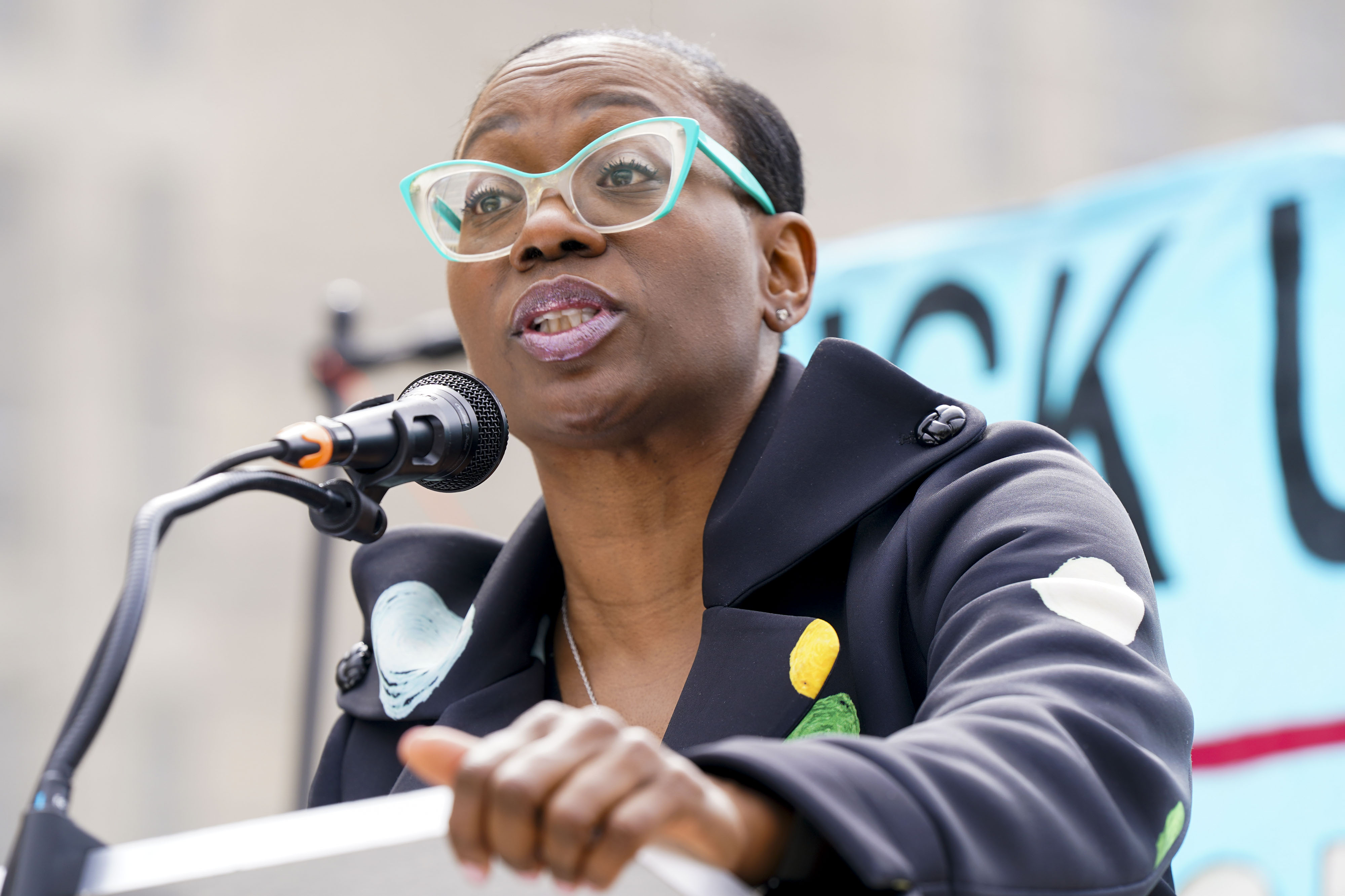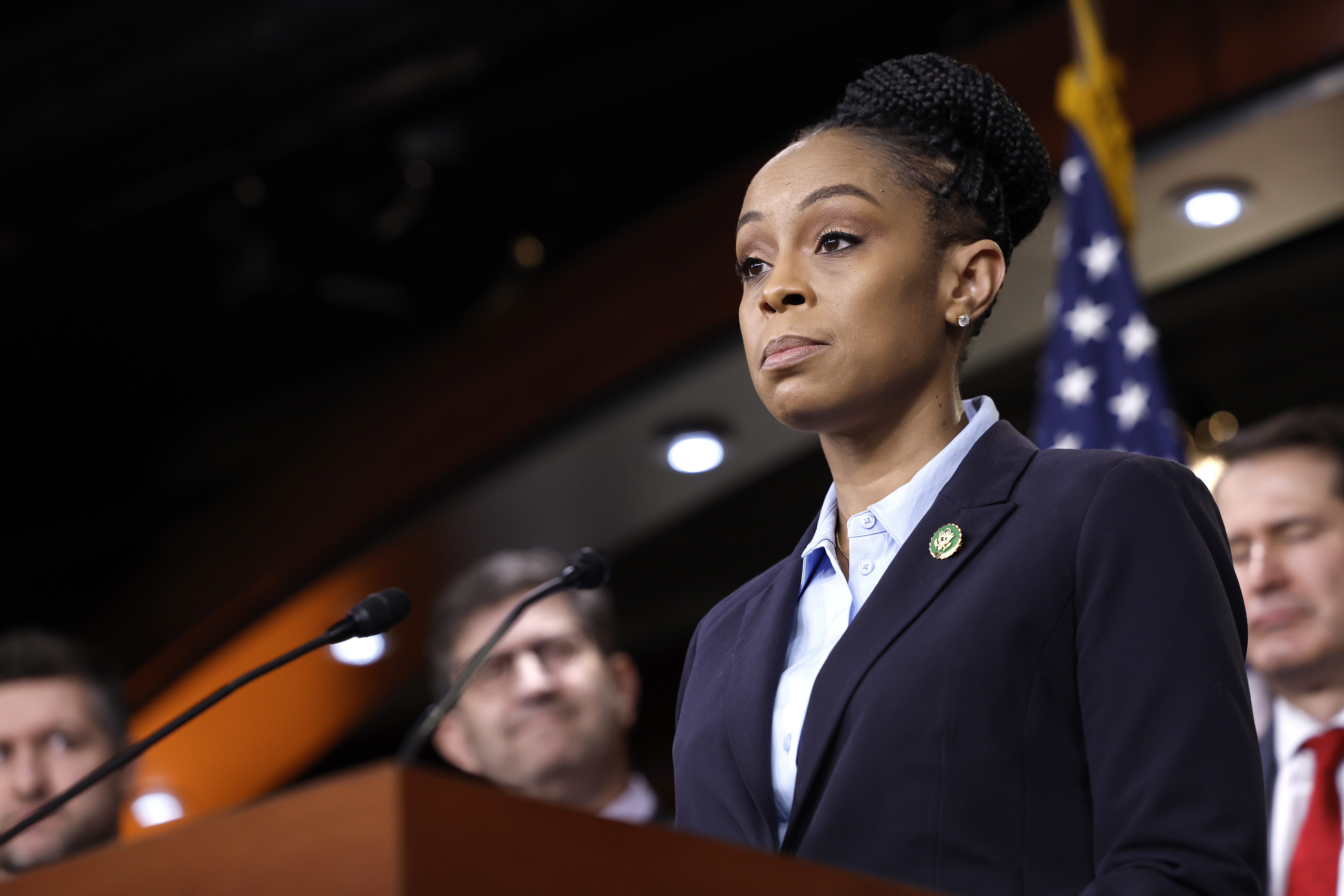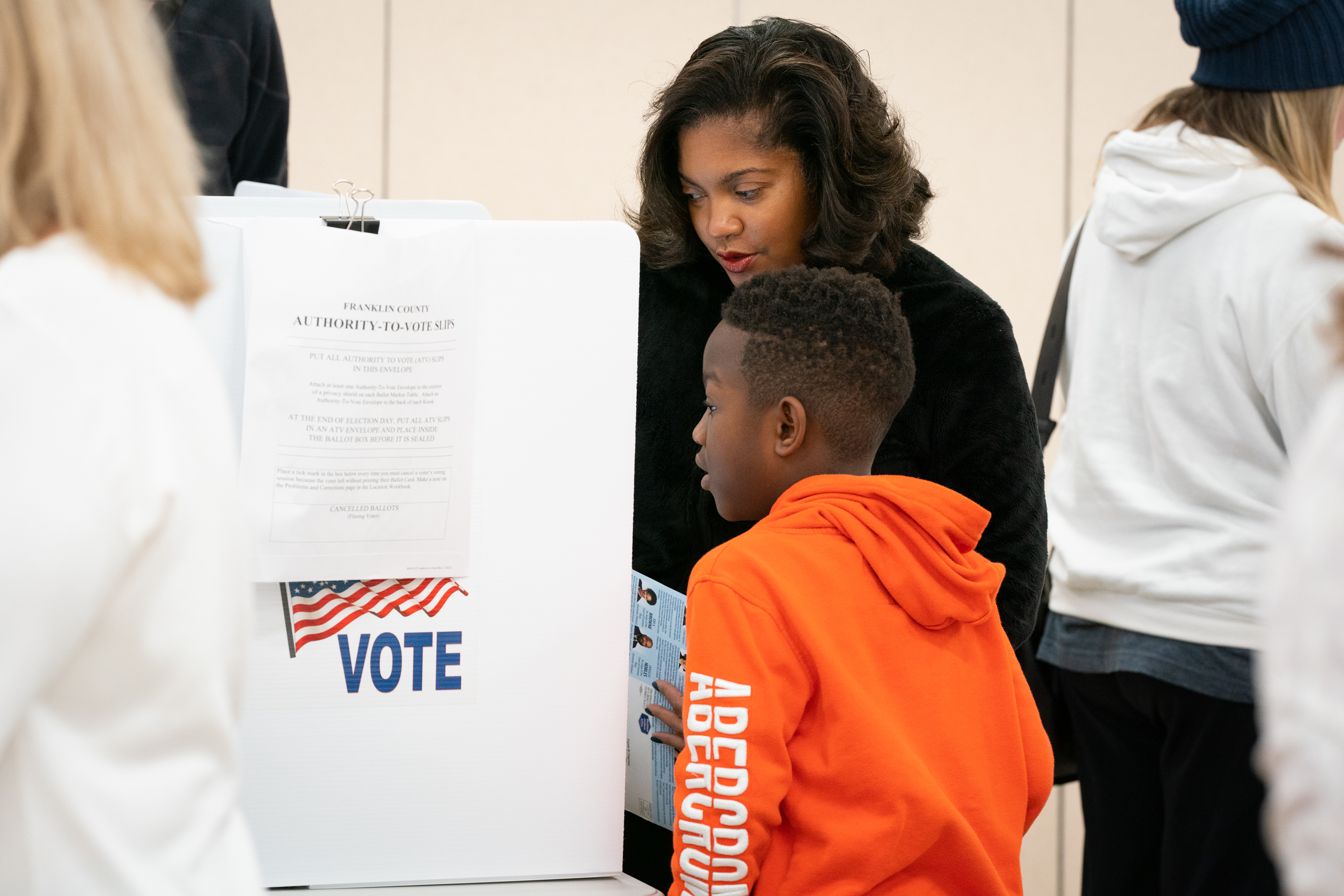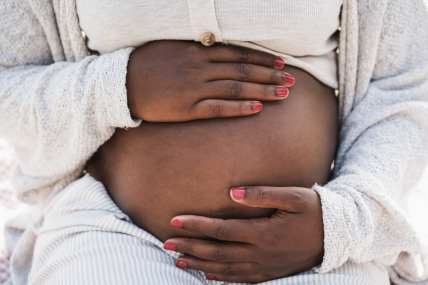Ohio vote on Issue 1 continues to signal abortion as winning issue for Democrats
Democrats tell theGrio that Tuesday’s results in Ohio were an undeniable win for the reproductive rights movement.
Democrats are celebrating the rejection of a constitutional amendment in Ohio that is seen more broadly as a win for democracy and the national reproductive health movement. The latest victory for abortion rights is part of a trend that could signal trouble for Republicans in future elections.
Shortly after voters in Ohio rejected Issue 1, a proposal that would have raised the threshold in order to make amendments to the state constitution ahead of a major ballot measure this fall to protect abortion rights, President Joe Biden hailed the results in Ohio as a victory for democratic freedoms.

“Ohio voters rejected an effort by Republican lawmakers and special interests to change the state’s constitutional amendment process,” the president said in a statement released by the White House Tuesday night.
He continued, “This measure was a blatant attempt to weaken voters’ voices and further erode the freedom of women to make their own healthcare decisions. Ohioans spoke loud and clear, and tonight democracy won.”
Democrats tell theGrio that Tuesday’s results in Ohio were an undeniable win for the reproductive rights movement, which candidates have successfully campaigned on against Republicans throughout the country since the U.S. Supreme Court overturned Roe v. Wade last summer.
To date, Democrats have also seen similar wins on the ballot related to abortion in battleground states like Wisconsin and Michigan and even red states like Kansas and Kentucky.
“It is a win for abortion rights activists [and] people who believe that women should have the right to control their bodies to push back against extremism of the GOP,” said former Ohio State Senator Nina Turner.

Turner said Tuesday’s vote was yet another clear rejection of “extreme” Republicans who passed a six-week abortion ban, with no exception for rape or incest, that is currently being held up by the Ohio Supreme Court.
While abortion was not technically on the ballot on Tuesday, the results indicate that an upcoming ballot measure on Nov. 7 to enshrine abortion rights in Ohio will be enacted by voters.
“We can certainly look at it with cautious optimism as it relates to the abortion issue,” U.S. Rep. Shontel Brown, D-Ohio, told theGrio. The congresswoman and former chair of the Democratic Party in Cuyahoga County noted that the polls show that “58% of Ohioans support women and people being able to make their own healthcare decisions.”
Brown credited Tuesday’s rejection of the Republican-led Issue 1 proposal to the “broad coalition of folks who wanted to maintain the freedom to make their own decisions as it relates to democracy.”
The congresswoman said now the work begins to “capitalize and build on the momentum” of the successful campaign against Issue 1 by getting back on the ground to “meet people where they are so that they do not let these MAGA extremist right-wing Republicans continue to do everything they can to undermine and take away our freedoms.”
Given the several setbacks for Republicans on the issue of abortion, Brown said Republicans should “take note” of what happened in Ohio and “consider readjusting of their playbook across the country, or they’re going to continue to see defeat.”

Political strategist Alencia Johnson noted that “when abortion access was directly put on the ballot, the majority of voters – including Republicans and Independents – vote in favor of keeping it.”
Despite Republicans trying to “cheat and change the rules for themselves in order to impact the outcome,” Johnson said, “voters saw through it.”
The former director at Planned Parenthood credited the Ohio results to organizers and the activists who were on the ground educating voters. More specifically, she also tied it to the political power of Black women, who are disproportionately impacted by abortion restrictions and maternal mortality.
“While we are fighting for our lives, we are also very clear on the way to organize,” said Johnson. “Some will say, well, you know, a Republican won here, there’s no way that this issue could win, and yet Black women actually know how to organize in a very nuanced and coalition-building way that is inclusive of so many people.”
It’s that level of organizing from Black women and other coalitions that will be crucial in the upcoming 2024 elections, she noted.
“We need to make sure there’s a president to keep our Supreme Court judiciary in the right position to protect the work that we’re doing at the local and state level,” Johnson added. “But I’m hopeful that candidates, party committees, the big advocacy groups, the funders, all of these folks, are investing in Black women organizers and organizations.”
Turner noted that the No. 1 issue for Black women in Ohio, and likely throughout the country, is the economy. Bridging the issues of abortion and the economy could be one way to build political power at the ballot box.

“Abortion rights and reproductive healthcare access is a pocketbook issue,” she told theGrio.
Congresswoman Brown said it’s important for Democrats to remember that abortion is about being able to “make your own healthcare decisions.”
“That impacts more than just women; it impacts men, it impacts Democrats, it impacts Republicans, and impacts the rich and the poor,” she explained. “That is going to be the coalition that we’ll have to stay connected to…as we continue to build our message out or the 2024 election.”
While abortion was in the backdrop of Tuesday’s vote in Ohio, Brown said it was largely about “protecting the rights of one person, one vote, and the majority rule.”
She added, “It showed that issues are still important, messaging still matters, and that the power still belongs to the people.”

Gerren Keith Gaynor is a White House Correspondent and the Managing Editor of Politics at theGrio. He is based in Washington, D.C.
TheGrio is FREE on your TV via Apple TV, Amazon Fire, Roku, and Android TV. Please download theGrio mobile apps today!


